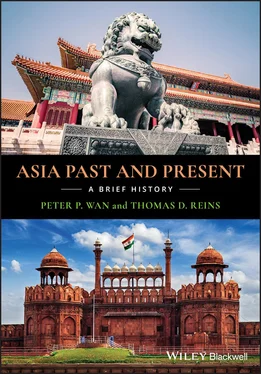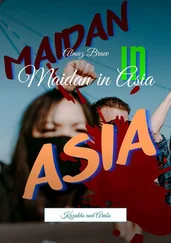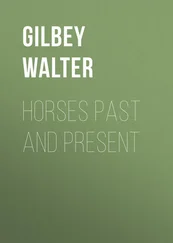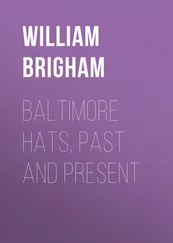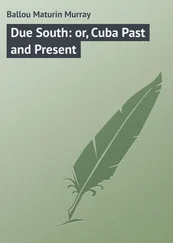Registered Office John Wiley & Sons, Inc., 111 River Street, Hoboken, NJ 07030, USA
Editorial Office 111 River Street, Hoboken, NJ 07030, USA
For details of our global editorial offices, customer services, and more information about Wiley products visit us at www.wiley.com.
Wiley also publishes its books in a variety of electronic formats and by print‐on‐demand. Some content that appears in standard print versions of this book may not be available in other formats.
Limit of Liability/Disclaimer of Warranty While the publisher and authors have used their best efforts in preparing this work, they make no representations or warranties with respect to the accuracy or completeness of the contents of this work and specifically disclaim all warranties, including without limitation any implied warranties of merchantability or fitness for a particular purpose. No warranty may be created or extended by sales representatives, written sales materials or promotional statements for this work. The fact that an organization, website, or product is referred to in this work as a citation and/or potential source of further information does not mean that the publisher and authors endorse the information or services the organization, website, or product may provide or recommendations it may make. This work is sold with the understanding that the publisher is not engaged in rendering professional services. The advice and strategies contained herein may not be suitable for your situation. You should consult with a specialist where appropriate. Further, readers should be aware that websites listed in this work may have changed or disappeared between when this work was written and when it is read. Neither the publisher nor authors shall be liable for any loss of profit or any other commercial damages, including but not limited to special, incidental, consequential, or other damages.
Library of Congress Cataloging‐in‐Publication Data
Names: Reins, Thomas D. (Thomas David), author. | Wan, Peter P., author.
Title: Asia past and present: a brief history / Thomas D Reins, Peter P Wan.
Description: Hoboken, NJ: Wiley‐Blackwell, 2020. | Includes index.
Identifiers: LCCN 2020020767 (print) | LCCN 2020020768 (ebook) | ISBN 9781118955185 (paperback) | ISBN 9781118955192 (paperback) | ISBN 9781118955208 (adobe pdf) | ISBN 9781118955215 (epub)
Subjects: LCSH: Asia–History. | Asia–Civilization. | Asia–Politics and government.
Classification: LCC DS33 .R39 2020 (print) | LCC DS33 (ebook) | DDC 950–dc23
LC record available at https://lccn.loc.gov/2020020767LC ebook record available at https://lccn.loc.gov/2020020768
Cover Design: Wiley
Cover Images: The Forbidden City, Beijing © DuKai photographer/Getty Images, Red Fort Lal Qila with Indian flag. Delhi, India © f9photos/Getty Images
To my father and mother Hsin Wan and Ruth Rugg Wan, who set an example of common decency, and To my wife Laura L. Wan and to my late daughter Amy Q. Wan
Peter P. Wan
To my father Harry Reins, who provided a challenging model of hard work and tenacity based on his daily life which I wisely attempted to follow, though with a few lapses, and To my wife Susan A. Reins and to my daughter Christine Reins‐Jarin
Thomas D. Reins
Peter P. Wan, PhD, Harvard University, 1997
Dr. Wan has taught at East China Normal University, Shanghai; at California State University, Fullerton and Los Angeles campuses; and at Fullerton College.
He has been awarded fellowships at the Harvard‐Yenching Institute and the Fulbright Visiting Scholars Program.
Thomas D. Reins, PhD, Claremont Graduate School, 1981
Dr. Reins has lived and studied in several Asian locations, including Japan, the Philippines, Thailand, Taiwan, as well as a number of places in mainland China. He has taught at several institutions of higher education, including California State University, Fullerton and Los Angeles campuses; University of California, Riverside; Fullerton College; and currently Chapman University. His Asian history courses include Modern Asia, Modern China, Modern Japan, Modern Southeast Asia, Asian History and Film, and the Vietnam Wars.
His research focus is the opium trade in nineteenth‐ and early twentieth‐century China, India, and globally.
Peter P. Wan
To my professors at Harvard University: Akira Iriye, Stephan Thernstrom, and the late Sacvan Bercovitch. Given my educational background, I would never have been able to complete my doctorate without their detailed and sustained guidance.
To William Cai, who provided indispensable research assistance.
Thomas D. Reins
To my Asian history professors, who guided me through the broad array of Asian cultures. My understanding of South Asia was greatly enhanced by decades of discussion with my colleague, the late Professor Seymour Scheinberg, whose study of and travels to India and the Himalayan nations gave me firsthand insights into the region; and to the late Alan Greenberger, whose classes on Indian history and culture provided an exciting and stimulating intellectual background for a lengthy and complex culture. Michael Onorato’s Southeast Asian classes during those Vietnam War years presented insightful and thorough lectures on colonialism, its demise, and modernization issues that followed. My East Asian academic mentors are numerous. For Japan, I am indebted to Kinji Yada for his informative lectures and decades of discussion about Japan and life and culture beyond Asia; to Peter Duus, whose Tokugawa and Meiji seminar opened my eyes to the intricate and turbulent relationship between economic and political modernization; and to Gordon Berger, whose Taisho and Showa seminar afforded me a nuanced look into the impact of democracy, the depression, world war, and recovery in Japan. My training in Chinese history began with Linda Pomeranz’s class in Modern China; in Taiwan, I had the opportunity to hear the lectures of Hsu Cho‐yun on Zhou Dynasty socioeconomic change; the late Lloyd Eastman grounded me in nineteenth‐century China in his materials seminar that included essential monographs and weekly discussions of them; Jerry Dennerline’s class on premodern China afforded me a look at the tradition I needed to appreciate in order to understand the problems of the nation’s modernization. And finally I owe a debt of gratitude to Arthur Rosenbaum, whose classes and reading seminars better prepared me for my research, and who as my dissertation advisor provided sage advice, which came quickly with each chapter I submitted to him.
I would also like to recognize three other mentors in my learning process. To Nelson Woodard, whose classes and seminar on American Foreign Policy were all models of meticulous academic preparation and delivery. David Pivar’s seminar on Historical Thinking made me think, probably for the first time seriously, about historical thinking. And to Bob Leonard, who serves as a model of the patient teacher who persistently guides and motivates the plodding student.
The chapters of the text that I wrote—those beyond China, Japan, and Korea—benefitted from the careful reading and valuable commentary of Professor Jackson Putnam. His constant encouragement pushed me forward year by year. I appreciate as well the comments of Professor Laichen Sun, who kindly read and commented on some of the early iterations of my Southeast Asia writings. To both I extend my appreciation, though I alone am responsible for the final written product.
We also wish to thank two anonymous reviewers for their comments and suggestions regarding the organization and content of the manuscript. They helped us to add, subtract, or merge materials and to clarify numerous descriptions of people, places, and ideas. We furthermore need to acknowledge our appreciation for the work of Mr. Patrick Davison and Mr. Bo Kent, Internet wizards, for the electronic expertise they provided to an older, electronically clumsy generation.
Читать дальше
